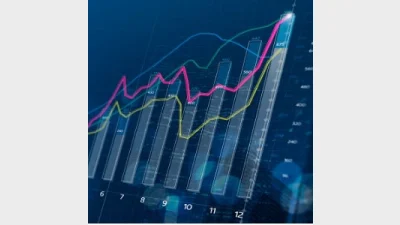Global credit to see a cyclical recovery in 2021



Given expectations for a vaccine and the tremendous policy responses at work, there will be a very high likelihood of a cyclical recovery and further spread tightening in corporate credit due to stronger global GDP growth, according to Brian L. Kloss, portfolio manager at Brandywine Global.
The new administration in the US could lead to increased corporate tax rates and regulations, which introduced some uncertainty. However, the extensive monetary and fiscal support, including the potential for another US fiscal stimulus package, would outweigh any economic constraints resulting from these potential regulatory headwinds, the firm said.
“Therefore, we remain constructive on risk assets, expressing that view through corporate credit markets. A major tailwind for corporate credit markets is the continued strong demand from foreign investors, which has allowed credit markets to issue at record amounts and enabled companies to lower the cost of capital and extend their maturity profiles,” Kloss said.
Brandywine’s focus would be on the economic cycle as basic industries, capital goods, energy, and other cyclical sectors in both developed and emerging markets as they were still trading at spreads wide to historical levels, in particular on those industries that had a more cyclical tilt, like autos and mining, which should see marked improvement as the economy rebounds from the lockdowns.
“As the global recovery progresses, demand resumes, manufacturing and exports tick higher, and the medical front draws nearer to resolving the COVID-19 pandemic, conditions are in place for a reflationary trade and substantial spread tightening in these more cyclical areas of the economy,” Kloss added.
“We are generally avoiding both ends of the credit-quality spectrum, with high quality offering limited total return potential, and lower-quality bonds still susceptible to hiccups in the global economic recovery. However, if the global economy picks up steam, we would anticipate moving farther down the quality spectrum.”
The manager said that as long as inflation was a risk, they would not envision a significant back-up in yields in the near term and would continue to reduce spread duration in positions that reached or traded through fair value in favour of opportunities that include some of the following characteristics:
• A shorter maturity;
• An OAS that will compensate or cushion an investor for a back-up in the risk-free rate;
• Cyclical exposure;
• Commodity exposure;
• Non-US assets; and
• Lower-quality assets.
Recommended for you
LGT Wealth Management is maintaining a neutral stance on US equities going into 2026 as it is worried whether the hype around AI euphoria will continue.
Tyndall Asset Management is to close down the Tyndall brand and launch a newly-branded affiliate following a “material change” to its client base.
First Sentier has launched its second active ETF, offering advisers an ETF version of its Ex-20 Australian Share strategy.
BlackRock has revealed that its iShares bitcoin ETF suite has now become the firm’s most profitable product line following the launch of its Australian bitcoin ETF last month.












